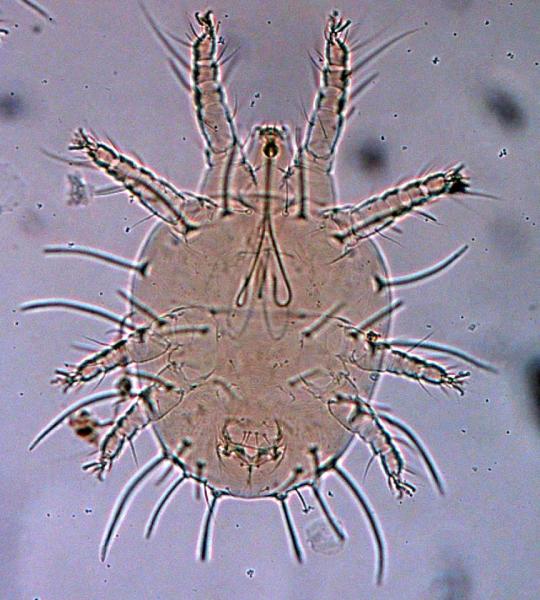Red palm mites can cause significant losses to U.S. crops

rosemary herbs enroute to the U.S.
HOUSTON – U.S. Customs and Border Protection agriculture specialists working at George Bush Intercontinental Airport discovered a tiny pest that attached itself to a leaf in a shipment of herbs.
The shipment of herbs was arriving from Mexico when CBP selected it for an examination in early May.
During the examination, CBP agriculture specialists opened a box of rosemary and began shaking the sprigs. Tiny mites fell from the piney-scented herb, landing on the stark, white sheet of paper below.
“CBP agriculture specialists are careful and deliberate in their examinations,” said Houston CBP Port Director Shawn Polley. “They are CBP’s frontline in preventing the entry of these tiny potential threats before they have a chance to embed themselves into U.S. forests, crops, and community gardens.”

of rosemary herbs imported from Mexico.
A specimen of the pest was sent to US Department of Agriculture where entomologists identified the pest was as Raoiella indica Hirst (Tenuipalpidae), known as the red palm mite. This pest had attached itself to the rosemary which was unusual as red palm mites are usually found in groups of a few to hundreds on the underside of palm, banana, and ginger leaves. They are about 1/100th of an inch long and are bright red and visible to the naked eye.
Since red palm mites can potentially cause significant losses to the agriculture industry, the shipment of herbs was destroyed.
CBP agriculture specialists play a critical role in the agency mission by preventing the introduction of harmful exotic plant pests into the US. Each year, CBP agriculture specialists intercept tens of thousands of “actionable pests” – those identified through scientific risk assessment and study as being dangerous to the health and safety of US agriculture resources. On a typical day in fiscal year 2020, CBP agriculture specialists discovered 250 pests at US ports of entry and 3,091 materials for quarantine – plant, meat, animal byproduct, and soil.

